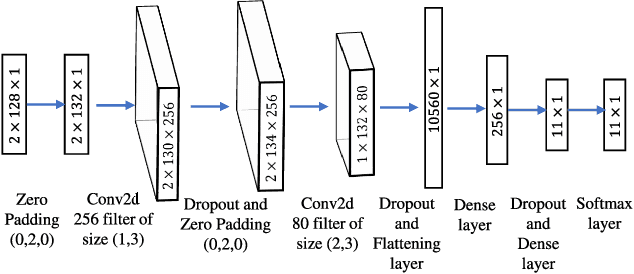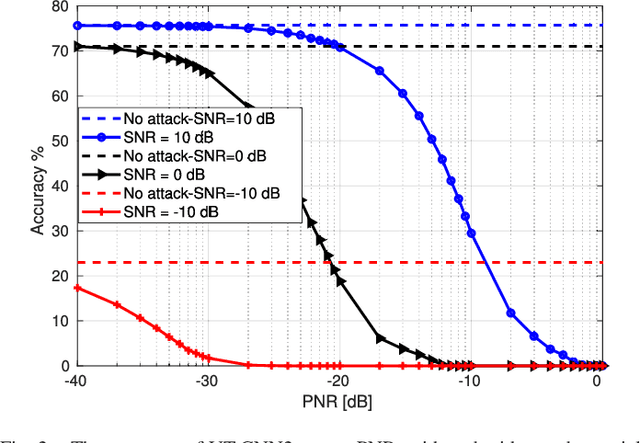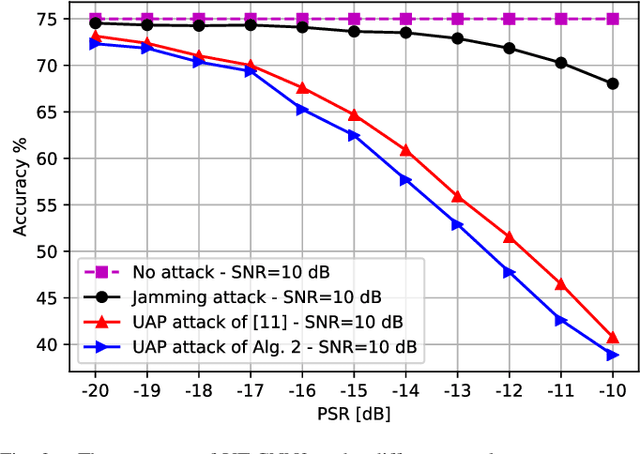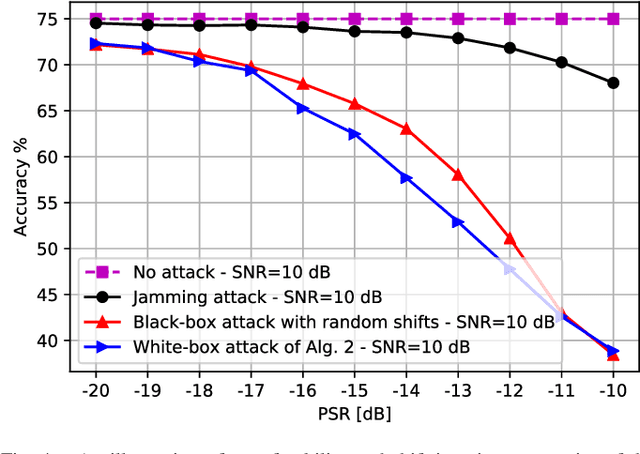Adversarial Attacks on Deep-Learning Based Radio Signal Classification
Paper and Code
Aug 23, 2018



Deep learning (DL), despite its enormous success in many computer vision and language processing applications, is exceedingly vulnerable to adversarial attacks. We consider the use of DL for radio signal (modulation) classification tasks, and present practical methods for the crafting of white-box and universal black-box adversarial attacks in that application. We show that these attacks can considerably reduce the classification performance, with extremely small perturbations of the input. In particular, these attacks are significantly more powerful than classical jamming attacks, which raises significant security and robustness concerns in the use of DL-based algorithms for the wireless physical layer.
* 4 pages
 Add to Chrome
Add to Chrome Add to Firefox
Add to Firefox Add to Edge
Add to Edge